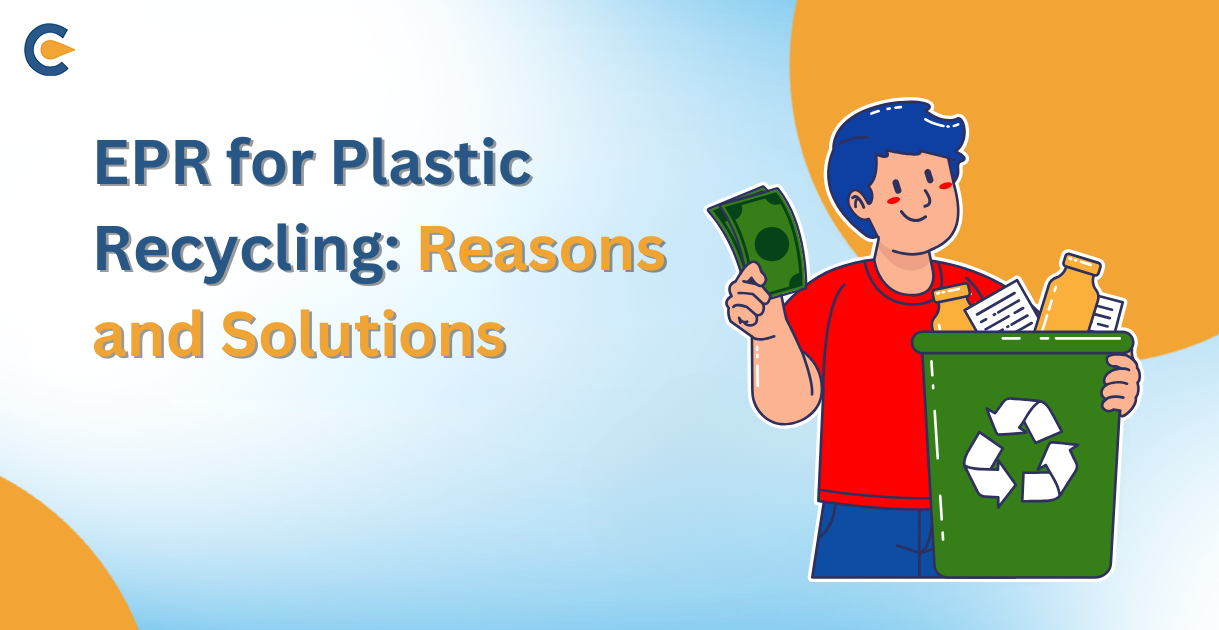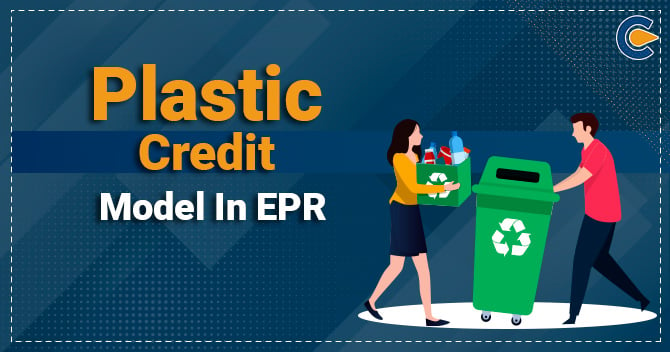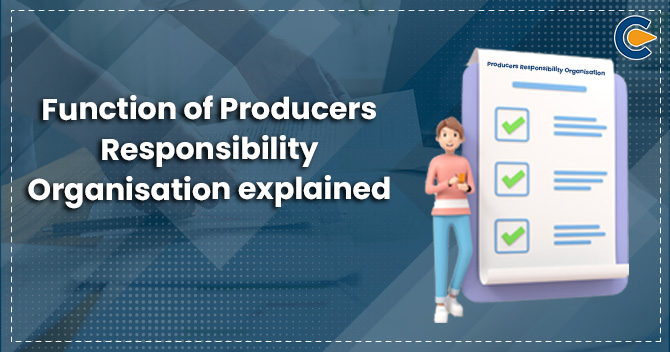EPR for Plastic Recycling: The pressing issue of plastic pollution on a worldwide scale calls for innovative solutions, and Extended Producer Responsibility (EPR) is one such approach that shows great promise for efficient plastic recycling. EPR for plastic waste management requires plastic product manufacturers to assume full responsibility for the whole lifecycle of their items, including collection, recycling, and disposal, so shifting the onus of responsibility from consumers and communities to these manufacturers. This strategy creates a structure for financing recycling programs via fees or taxes imposed on producers, in addition to encouraging manufacturers to develop recyclable items. EPR for Plastic Recycling fosters innovation in recycling technology and advances a circular economy—one in which plastics are reused to minimize environmental damage and conserve resources—by holding producers accountable.
What does EPR for Plastic Recycling signify?
EPR for Plastic Recycling signifies that the producer of the plastic products will be responsible for recycling those items so that they do not harm the environment. The consumer is free from this responsibility, and even a bottle of water has to be recycled by the producer, or else there can be fines and penalties attached against them. They have to collect these plastics and get them recycled or used somewhere else so that it does not pollute the environment and affect living beings. EPR for Plastic Recycling is the need of the hour since the pollution level in the country is increasing, and at this rate, it will destroy the objective of sustainable development.
Reasons why EPR for Plastic Recycling is the solution
The reasons why EPR for Plastic Recycling is the solution are as follows –
- The capacity of EPR to stimulate investment and innovation in recycling technology is one of its main benefits. Manufacturers have a stake in creating adequate recycling infrastructure and procedures since they will soon be held financially responsible for overseeing the end-of-life disposal of their products. This encourages technical developments in plastic sorting, processing, and reprocessing, increasing recycling’s viability from an economic and environmental standpoint. In addition, EPR promotes cooperation between many stakeholders, such as producers, recyclers, researchers, and policymakers, to recognize and execute optimal techniques for recycling plastic.
- EPR for Plastic Recycling initiates a good cause of environment protection and maintaining the motto of Sustainable Development and reducing pollution so that the average rising temperature of the Earth can be taken down. Extended Producer Responsibility enables the reduction in the use of plastic packaging, the collection and recycling of wastes created by plastic packaging, and the introduction of a new and innovative approach to plastic packaging that is easy to recycle and helps in the reduction of throwing and dumping of plastic wastes into nature.
- EPR has the potential to manage and propagate the agenda of plastic recycling across the country by spreading awareness amongst the consumers. Hence, they respond responsibly and help in managing plastic waste. The producers can mark a logo or slogan in the packaging to guide the customers and help them reduce waste in the streets and environment. They can also lure the customers to give product discount if they are disposing off the plastic waste properly or returning the bottles back to them.
Challenges faced for implementing EPR for Plastic Recycling
The task of implementing EPR for Plastic Recycling is challenging for the government as well as for the producers. Producers face many difficulties upon taking the EPR for plastic waste management since implementing this takes their time, effort, and a lot of money. To indulge this practice in their business structure is a massive task while developing strategies, ways of disposal, recycling, and then final disposal. They have to come up with a plan to dispose of these wastes in a way that doesn’t take much monetary assistance and doesn’t hamper the growth of the business. Government agencies like Ministry of Environment, Forest and Climate Change monitor these strategies for their proper and smooth implementation. Implementing EPR for Plastic Recycling has benefitted the country as the waste is managed comparatively better than it was handled earlier. Still, it poses a significant challenge on the shoulders of producers to manage such a tedious task and spread awareness to consumers about the disposal of plastic waste into the desired location.
Conclusion
To conclude, Extended Producer Responsibility (EPR) presents a comprehensive strategy to tackle the urgent issues surrounding plastic recycling. EPR encourages sustainable behaviors, stimulates innovation in recycling technologies, and promotes stakeholder collaboration by transferring the burden of duty to manufacturers. Taxes and fees incentivize manufacturers to build effective recycling infrastructure and absorb the environmental costs of their goods. Additionally, EPR raises consumer awareness and eases the shift to a circular economy model, which recycles and repurposes resources to save them. EPR has the ability to reduce plastic pollution, preserve natural resources, and build a more sustainable future for future generations through these methods. It is imperative to adopt EPR as a holistic solution to address the worldwide plastic waste challenge and protect public health and the natures.
Corpbiz is always there for you to seek help if you want to implement EPR for plastic waste management at your organization. We will help you out in finding the means through which the cost can be reduced, and waste management compliance can be met. We work as a team and will make innovative steps to get the job done and spread awareness about safe and secure disposal of plastic wastes in the country.
Frequently Asked Questions
What is an EPR for Plastic Recycling?
EPR for Plastic Recycling is an Extended Producers Responsibility to manage and dispose of the plastic waste arising out of their production and product packaging. It is made mandatory for the producers to take care of the plastic waste by the Government of India and concerned authorities to promote sustainable development.
What are the different types of challenges faced by Plastic Recycling?
The different types of challenges faced by Plastic Recycling are as follows –
– Financially adapting to implement the policies pertaining to plastic waste management.
– Handling a lot of recycling task while doing business
– Implementing new and innovative waste management models
– Propagating the awareness about recycling of plastic waste and how its disposal in the environment can destroy life formsIs Extended Producers Responsibility a mandate in the country?
Yes, The Plastic Waste Management Rules, 2016, has made it mandatory for the importers, producers, and plastic material brand owners to carefully manage the plastic waste produced and dispose of it so that they do not harm anyone.
Is there any threshold limit by the government on producers to implement EPR?
No, there is no such threshold limit by the government for producers to implement EPR, and even MSMEs (micro, small, and medium enterprises) dealing with plastic products have to comply with the rules and regulations to avoid penal charges.
How is EPR essential?
EPR is essential in managing plastic waste effectively and spreading awareness through various means, like using packaging to make the general public aware of plastic waste. It also helps in its effective management. It also encourages entities to take innovative approaches in their production and reduce the use of plastic while making the products eco-friendly.
What is the take-back solution in plastic waste management?
The take back solution in plastic waste management means that the producers take back their product waste (plastic in this case) from the consumers so that it is appropriately managed. This ensures transparency, accountability, and product traceability at the end of producer which helps them to recycle it efficiently.
When did EPR got introduced in the country?
EPR was introduced in the country in the year 2011 to promote sustainable waste management in the country and reduce plastic wastes that are very harmful to the environment and living organisms.
Who is responsible for the introduction of EPR in India?
Ministry of Environment, Forest and Climate Change in the year 2011 introduced E-waste (Management and Handling) Rules. Later, in the year 2016 Plastic Waste Management Rules were also implemented.
How can EPR reduce plastic waste?
EPR can reduce plastic waste because since Plastic Waste Management Rules are implemented in the country, the producers have to recycle a lot of these waste. To minimise this, they come up with eco-friendly-ways of making the products, replacing the use of plastic, which is beneficial for the idea of sustainable development.
For whom is the EPR certificate mandatory?
An EPR certificate is mandatory for the producers, manufacturers, importers, and recyclers of products and the waste they generate in the country. E-waste, Plastic Waste, etc, are the areas where these people need an EPR certificate.
Read Our Article: Guide On EPR Registration For E-Waste Producers











